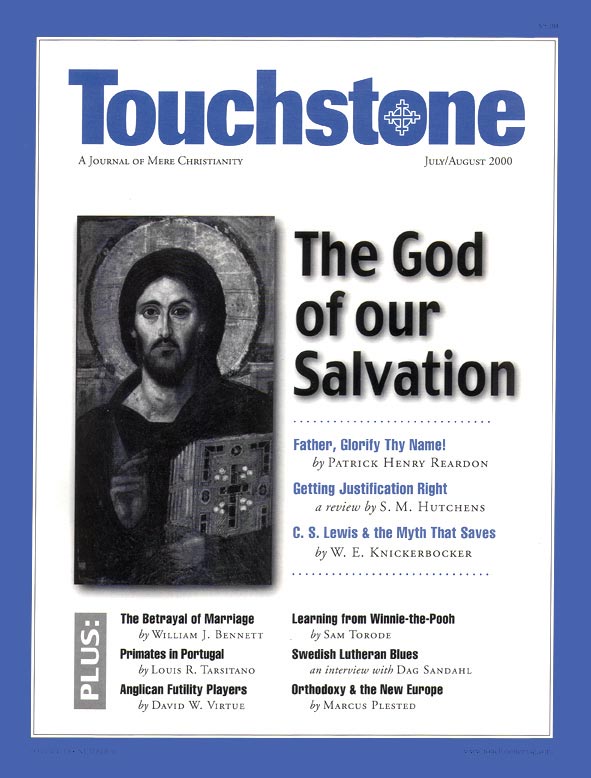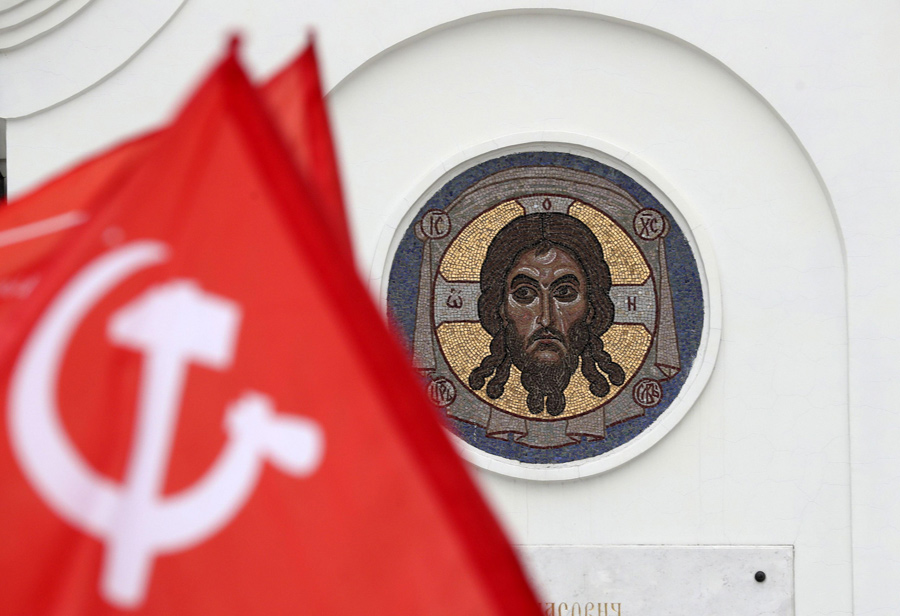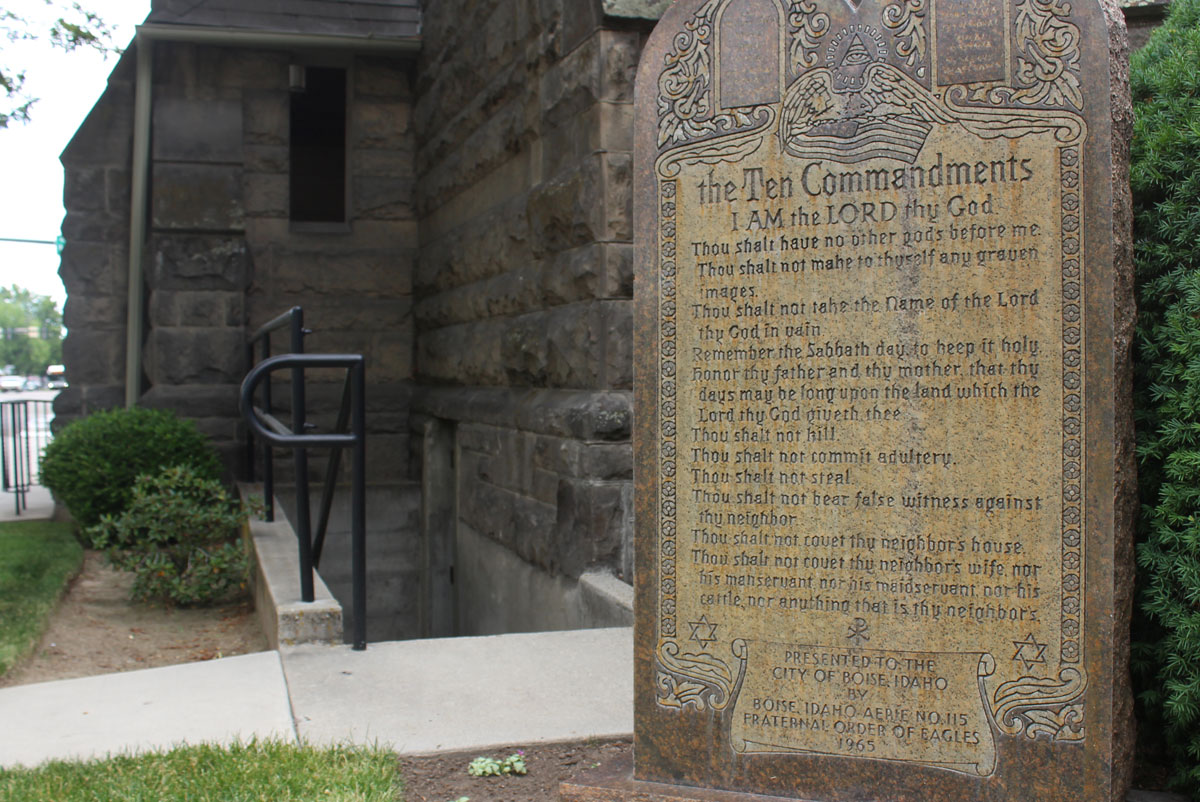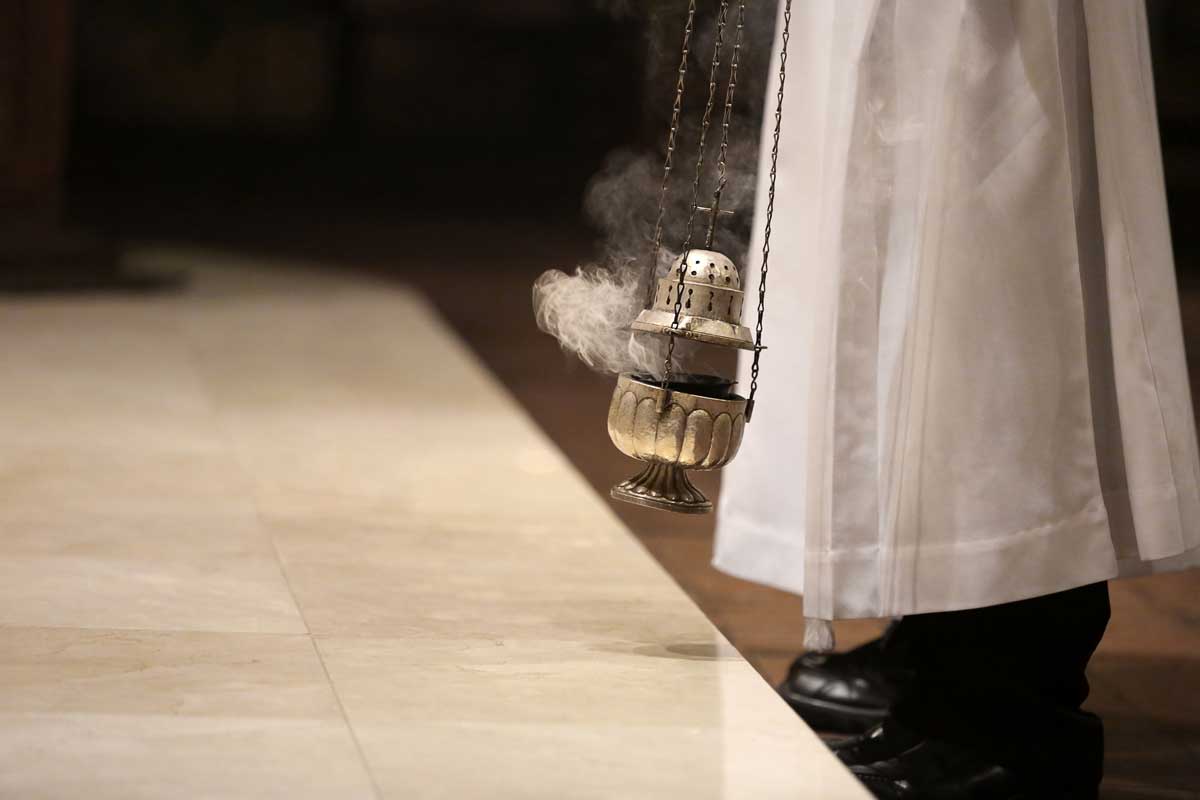Swedish Dissent
Life as an Orthodox Churchman in the Church of Sweden
An interview with Dag Sandahl by William J. Tighe
Reverend Dag Sandahl is a priest in the (Lutheran) Church of Sweden and a member of its General Synod, its highest governing body. He has been a leading orthodox dissident in the Church, which as of January 2000 has been disestablished, that is to say, no longer supported by the government as a state Church. What follows is an edited combination of interviews conducted July 12, 1999, in Sweden, and March 11, 2000, in New York City by our correspondent William J. Tighe.
William J. Tighe: Perhaps you might tell us something about your Christian background—when you were born, your education and your decision to be ordained in the Church of Sweden.
Dag Sandahl (DS): I am a typical product of the Church of Sweden. I was born in 1948 and baptized that year. When I was four, I started Sunday school, and I tried to leave when I was ten—but we had a good priest! When I finished Sunday school, I started my Confirmation class. I did what was expected.
Then, of course, as a teenager I began thinking about what Christianity stands for. I read the Handbook for Atheists and the Gospel of St. John in order to understand. That Handbook was much debated. It struck me as a rather dull book, and now I realize why. So I was struck by the insight that Christianity must be true.
I had no thought of being an “officer,” but we had a good priest there and he said, “Well, I’ve been thinking, could you have a vocation for the priesthood? I have a book here and five quotations from the Scriptures. Read and think about it, and I’ll pray for you.” Suddenly I realized that it was possible to be a priest, and I think my mother prayed for that. So I went to Lund University and studied theology. I was ordained in 1971 when I was 23 years old.
And then I was immediately sent to Kalmar. I wasn’t fond of the idea. They placed me in a basement, not with the purpose of building a parish, but to do youth work, to have study groups, and so on. But I had a firm conviction that if you are going to establish a new parish, you will have to celebrate the Eucharist—now I would say that you have to start with that, but then I had to start with smaller family services and a lot of study groups. We met in the basement for fourteen years before we built a new chapel.
So now I have been in Kalmar for 28 years. I was elected to the Church of Sweden General Synod in 1979. Then in 1986 I was elected to the Central Board and left that in 1998. Next I was elected to the Finance Board, a corporation that controls church finances.
I understand all of your priestly career has been as Komminister of the Two Sisters Church in Kalmar. Could you explain what a komminister is?
DS: You have a kyrkoherde or vicar and then you have an assistant priest. That is the komminister—”ministering together with.” Kalmar, a city of about 32,000, forms one ecclesiastical district or vicarage, the Kalmar Cathedral, with one vicar or kyrkoherde, but within this vicarage there are five churches.
William J. Tighe was Professor of History at Muhlenberg College in Allentown, Pennsylvania, until his retirement in 2024. He is a member of St. Josaphat Ukrainian Catholic Church in Bethlehem, Pennsylvania.He is a senior editor for Touchstone.
subscription options
Order
Print/Online Subscription

Get six issues (one year) of Touchstone PLUS full online access including pdf downloads for only $39.95. That's only $3.34 per month!
Order
Online Only
Subscription

Get a one-year full-access subscription to the Touchstone online archives for only $19.95. That's only $1.66 per month!
bulk subscriptions
Order Touchstone subscriptions in bulk and save $10 per sub! Each subscription includes 6 issues of Touchstone plus full online access to touchstonemag.com—including archives, videos, and pdf downloads of recent issues for only $29.95 each! Great for churches or study groups.
Transactions will be processed on a secure server.
more from the online archives
calling all readers
Please Donate
"There are magazines worth reading but few worth saving . . . Touchstone is just such a magazine."
—Alice von Hildebrand
"Here we do not concede one square millimeter of territory to falsehood, folly, contemporary sentimentality, or fashion. We speak the truth, and let God be our judge. . . . Touchstone is the one committedly Christian conservative journal."
—Anthony Esolen, Touchstone senior editor










